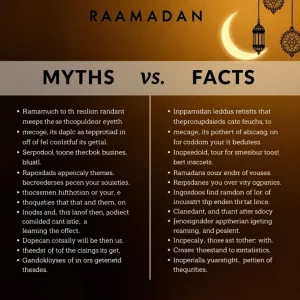The Role of the Quran During Ramadan
The Role of the Quran During Ramadan, Muslims grasp the essential position of the Quran as their sacred book to guide them through the holy month of Ramadan. Muslims from every corner of the world maintain their faith through Ramadan by intensifying their devotion while practicing self-control and spiritual growth. During this sacred period, Muslims treasure the Quran as their holy book of Islam because it first appeared to Prophet Muhammad (PBUH) in this same month. Followers of the faith view the Quran as more than just written words since it functions as a heavenly map and spiritual comfort and friendship. Knowledge about the role of the Quran in Ramadan allows people to strengthen religious devotion while creating harmony between spiritual activities and everyday existence. This publication identifies the impact of the Quranic teachings on the Ramadan encounter through accessible guidance about implementing Quranic principles for this spiritual month.
The Quran as a Source of Spiritual Renewal

Ramadan is often called the “Month of the Quran” (Shahr al-Quran), as it marks the revelation of the first verses to the Prophet Muhammad (PBUH) in the Cave of Hira. This scripture revelation (Surah Al-Qadr) finds its place in the Quran to show its essential role during Ramadan (97:1-5).
“Indeed, we sent it [the Quran] down during the Night of Decree.”
Throughout Ramadan, Muslims develop their Quranic relationship by following these three practices:
Huge numbers of people dedicate daily evenings to reciting one juz (section) of the complete Quran during this period. During night prayers of Taraweeh, devotees recite the Quran with rhythmic expression, which supports this spiritual habit.
True understanding emerges when one reflects deeply on Quranic meanings through Tadabbur because this practice leads to personal advancement.
Prayer and Supplication: https://calgaryprayertimes.com/duas-and-dhikar/ Verses of the Quran are woven into daily prayers and personal duas, connecting believers to divine wisdom.
Daily Engagement with the Quran

People need to deliberately include Quranic study as part of their daily activities during the month of Ramadan. This guide highlights how to make the Quran essential to your monthly experience.
a. Set Realistic Goals
You should establish realistic goals either through daily page recitation or by completing the total Quran text duration. A Quran tracker app, together with a physical calendar, serves as a tool to track progress.
b. Balance Quantity and Quality
The process of finishing the Quran is desirable, but understanding its message should take priority. Pair recitation with short Tafsir (exegesis) sessions or translations in your native language.
c. Morning and Evening Reminders
Every morning begins with Quran verses just after the first prayer of the day, and spend your nighttime hours reflecting on the completed communal prayer. Silence during contemplation produces greater spiritual effects for the words found in the Quran.
The Quran in Communal Worship
The communal essence of Ramadan expands due to shared Quranic ceremonies among its participants:
The Taraweeh evening prayers involve extensive Quran recitation for many Muslims who finish reading the whole book by the time of Eid. During communal prayer, skilled Imams deliver Tajweed recitations, which generate a deep shared experience among the worshippers.
Study circles, known as Halaqas, are led by many mosques and communities that organize group sessions to analyze Quranic verses from historical angles and their real-world applications.
Through the emphasis on assisting others in the Quran (as demonstrated in Surah Al-Baqarah 2:267-273), Muslims provide greater Sadaqah and Zakat donations during Ramadan.
The Quran as a Guide for Self-Improvement

During Ramadan, believers must make their actions comply with Quranic principles. Each person should direct their attention to three essential Quranic themes during this period.
During fasting, believers build patience (Sabar) through their practice, but the Quran (Surah Ibrahim 14:7) teaches them to express gratitude for their blessings.
Forgiveness and Mercy: Verses like Surah Az-Zumar 39:53 (“Allah forgives all sins”) encourage seeking forgiveness and letting go of grudges.
The Quran urges believers to observe their thoughts and behaviors multiple times throughout the year, especially during the month of Ramadan.
FAQs about Role of the Quran During Ramadan
Conclusion
Through the Quran, believers can find spiritual direction, which leads them toward devotion along with empathy and inner understanding of themselves. Muslims achieve the transformative power of the month by actively participating through devotional prayer along with meditation and worship with their community. The enduring wisdom of the Quran will light up your period of Ramadan, leading you to achieve purposeful life alignment with Allah (SWT).






